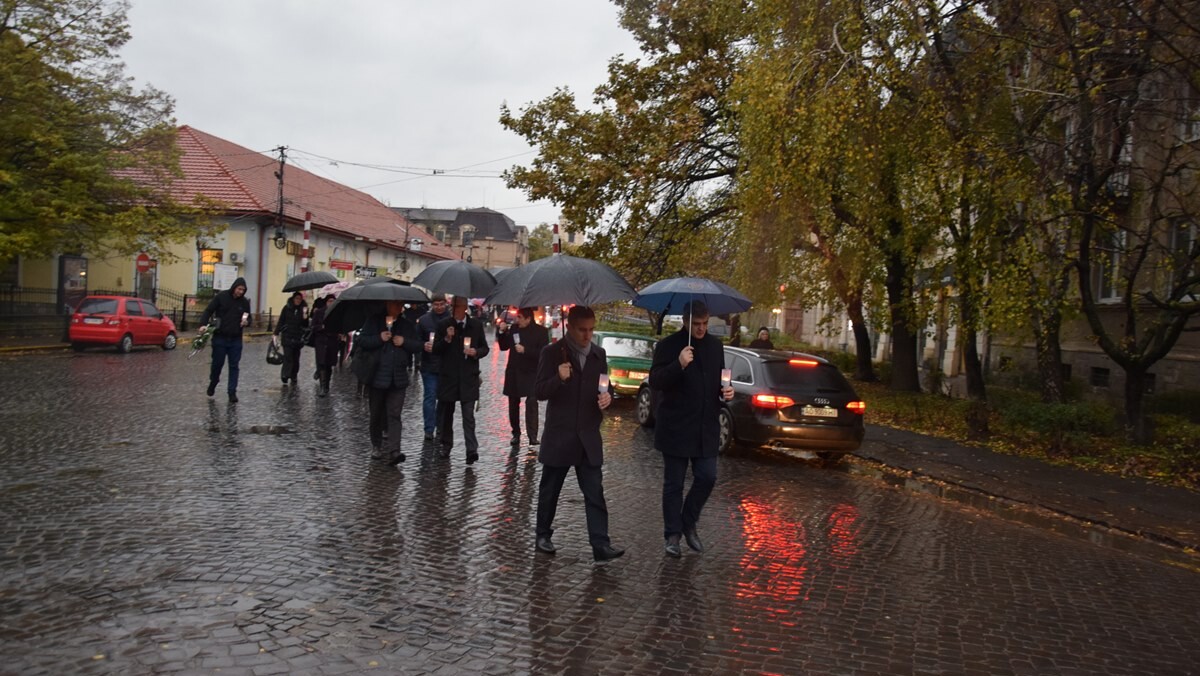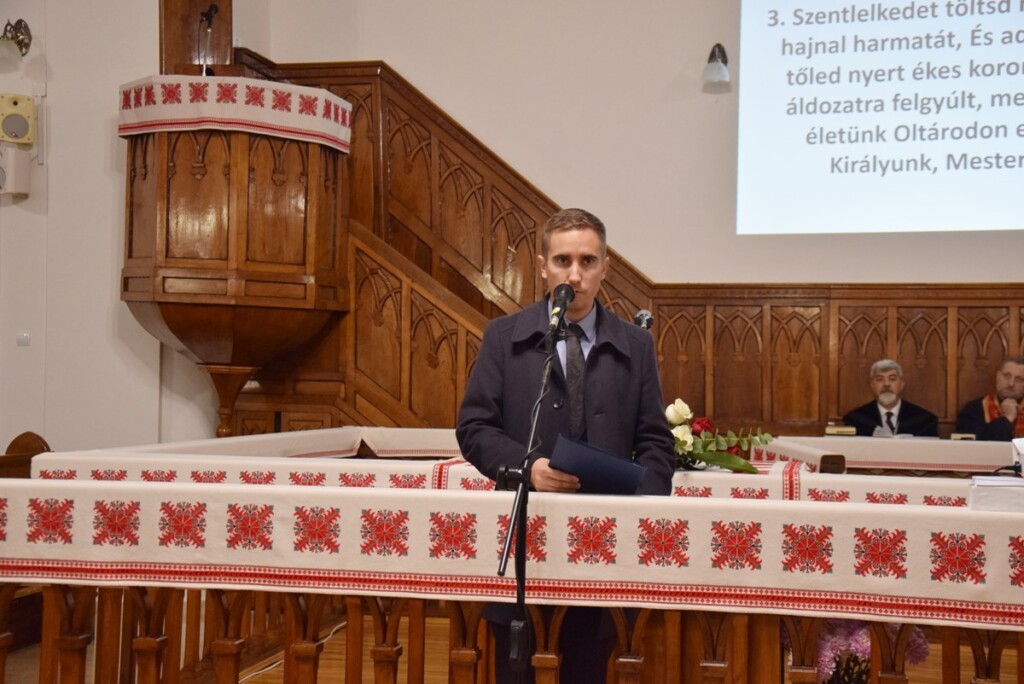“Their only sin was their Hungarian identity” – victims of the Malenkij Robot were remembered in Beregszász
The Ferenc Rakoczi II Transcarpathian Hungarian College of Higher Education, the Pro Cultura Subcarpathia civil organization, the Town Hall in Beregszász and the historical churches jointly commemorated the victims of the Malenkij Robot on 17 November.
The event started with a ceremony in the courtyard of the Rákóczi College, where the participants laid a wreath at Peter Matl’s artwork titled “Gúzsban“, a symbol of the man who lost his freedom.
Afterwards, an ecumenical service was held in the Reformed Church of Beregszász. János Molnár, episcopal vicar, the parish priest of the Roman Catholic Diocese in Beregszász, István Marosi, Greek Catholic parish priest, director of the Ortutay Centre, and Ferenc Taracközi, the senior pastor of the Reformed Parish of Beregszász, remembered those who did not deny their faith in difficult times. Afterwards the church dignitaries asked for blessings on the lives of those present.
The event was graced by the presence of Ádám Stifter, State Secretary for Eastern Affairs of the Ministry of Foreign Affairs.
“Today we remember one of the greatest tragedies of the Hungarian nation and of Europe. 79 years ago, people were deported and made to work in inhumane conditions. Nearly a third of those taken away never returned to their homeland”,
said Ádám Stifter, adding that today we, all Hungarians, have a special responsibility, as it is our duty to reveal the fate of our ancestors and to leave a mark for posterity.
In his speech, István Csernicskó, rector of our college, recalled the historical events, and through literary examples – Zoltán Mihály Nagy’s “Sátán fattya” and Vilmos Kovács’s “Holnap is élünk” – presented how the people of the past experienced the unfathomable.
“We are remembering the thousands of men who were deported, and those who stayed at home, waiting hopefully for their loved ones to return home from the camps,”
he concluded.
At the end of the service, attendees individually read the names of more than 300 victims from Beregszász, whose only fault was being born Hungarian. Subsequently, they placed memorial wreaths in the foyer of the Reformed Church.
The service was followed by a candle-light procession. Remembrance wreaths were placed at the memorial plaques at the entrance to School No. 5 and at the Malenkij Robot memorial on Széna Square.
Anita Kurmay
-
This article is also available in
Українська
Magyar


